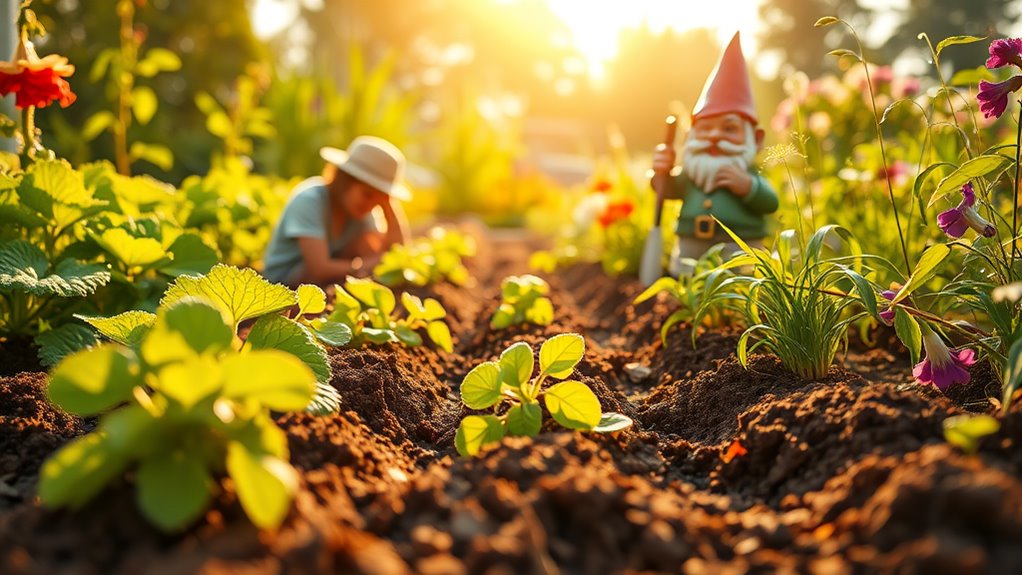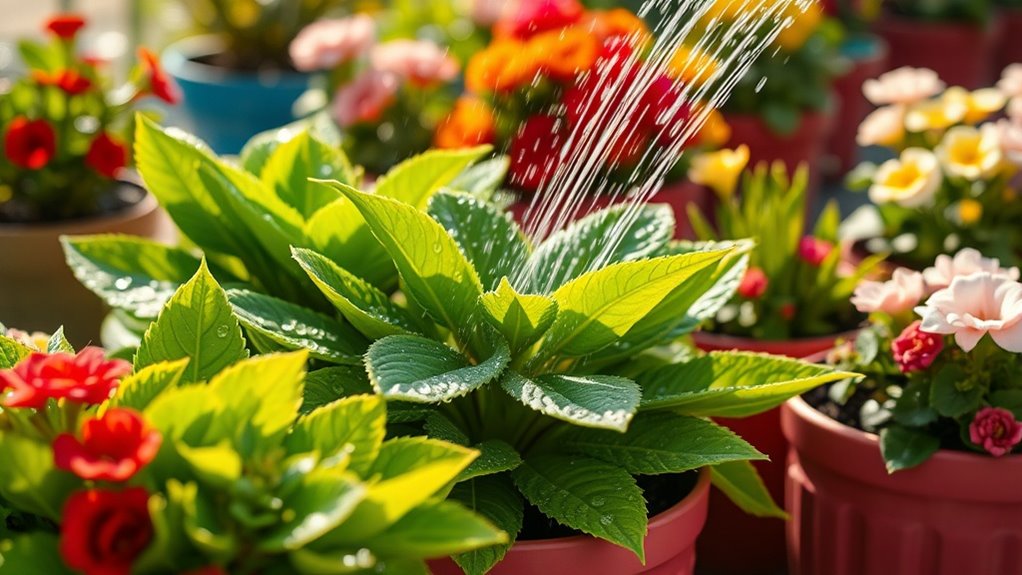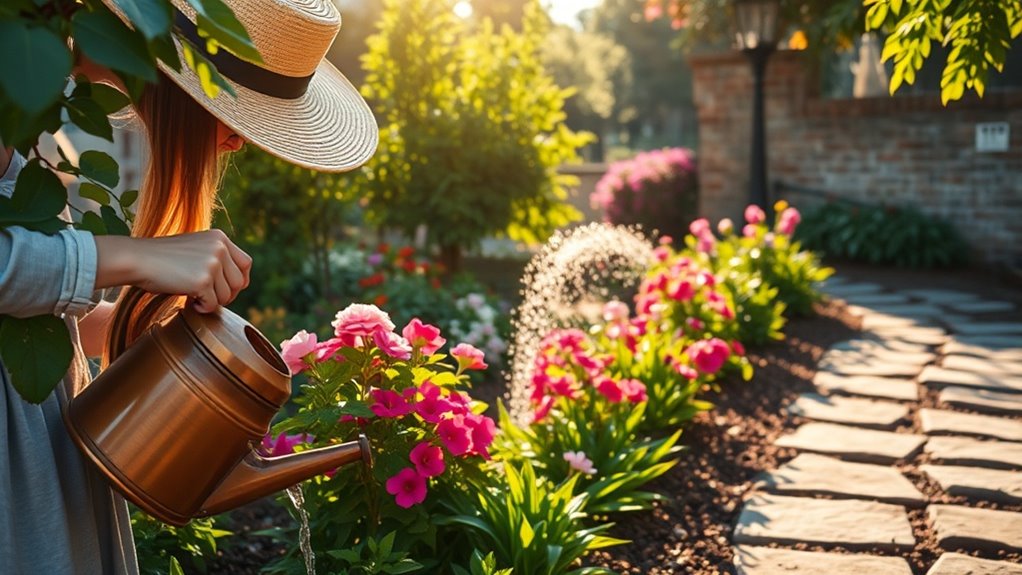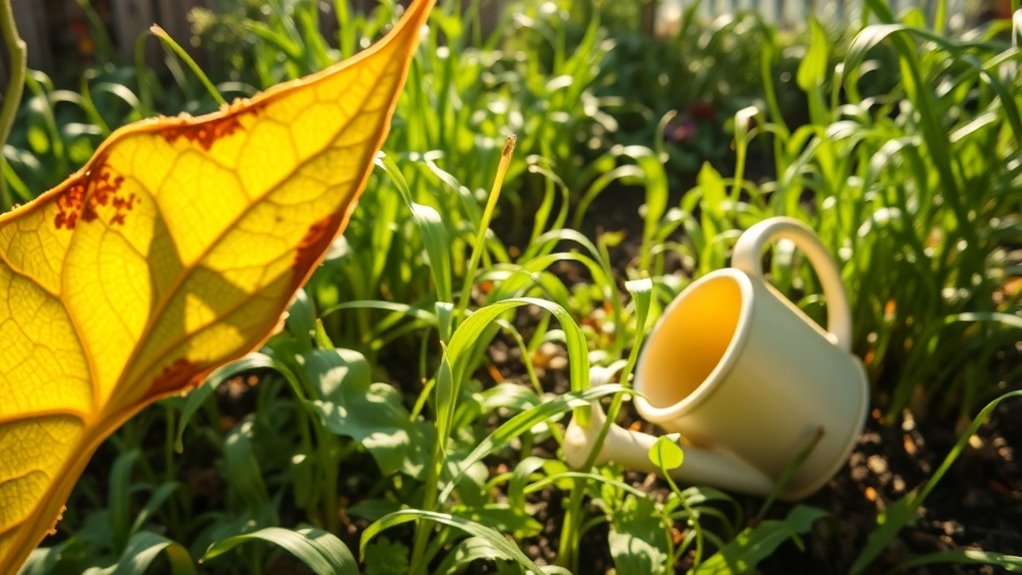These 5 Common Garden Myths Are Wasting Your Time
You might believe that certain gardening practices are essential for success, but many common myths can mislead you. For instance, thinking coffee grounds are a miracle fertilizer or that daily watering is necessary can hinder your plants’ growth. It’s time to question these assumptions and explore the realities that affect your gardening outcomes. Understanding these misconceptions can save you time, resources, and effort—so let’s take a closer look at these five myths.
Myth 1: Coffee Grounds Are the Ultimate Garden Fertilizer
Many gardeners swear by coffee grounds as a miracle fertilizer, believing that their high nitrogen content can significantly boost plant growth.
However, this is one of the common garden myths. While coffee grounds can offer some nutrients and improve soil texture, relying solely on them isn’t effective.
Balanced fertilization with a variety of nutrients is crucial for healthy plant development. Furthermore, incorporating drought-tolerant vegetables into your garden can also help conserve water and ensure productive growth with minimal irrigation.
Myth 2: You Should Water Your Plants Every Day
While it might seem logical to water your plants daily for optimal health, this common practice can actually lead to more harm than good.
Consistent daily watering can prevent roots from developing deep into the soil, making plants dependent on surface moisture. Instead, water deeply but less frequently, allowing the soil to dry out between sessions. This encourages stronger, more resilient plants. Additionally, promoting deep root growth helps your plants better withstand periods of drought.
Myth 3: Mulch Keeps Weeds Away Completely
Watering correctly is just one aspect of maintaining a healthy garden, but mulch is often viewed as a foolproof solution for preventing weeds.
In reality, it’s not entirely effective. Consider these points:
- Mulch can degrade over time.
- Weeds can germinate through the mulch.
- It may create a habitat for pests.
- Regular maintenance is still necessary.
Additionally, natural methods like hand-pulling or using vinegar can also help in controlling weed growth.
Keep your expectations in check!
Myth 4: Pruning in the Fall Is Always Beneficial
Although pruning is a critical aspect of plant care, the belief that doing it in the fall is always beneficial can lead to unintended consequences. Some plants may struggle to survive winter after fall pruning. Here’s a breakdown:
| Plant Type | Prune in Fall? | Recommended Time |
|---|---|---|
| Deciduous | No | Late Winter/Early Spring |
| Evergreen | Sometimes | Late Winter |
| Flowering | Depends | After Bloom |
| Shrubs | Rarely | Early Spring |
| Trees | No | Dormant Season |
Myth 5: Organic Pesticides Are Always Safe for Plants
Understanding the intricacies of plant care goes beyond pruning; it extends into how you manage pests. While organic pesticides can be helpful, they’re not always benign. Consider these points:
- Not all organic options target pests effectively.
- Some can harm beneficial insects.
- Misapplication may damage plants.
- Always research ingredients before use.
Additionally, exploring eco-friendly methods is crucial for safeguarding your crops while supporting beneficial wildlife. Choose wisely to protect your garden’s health!





